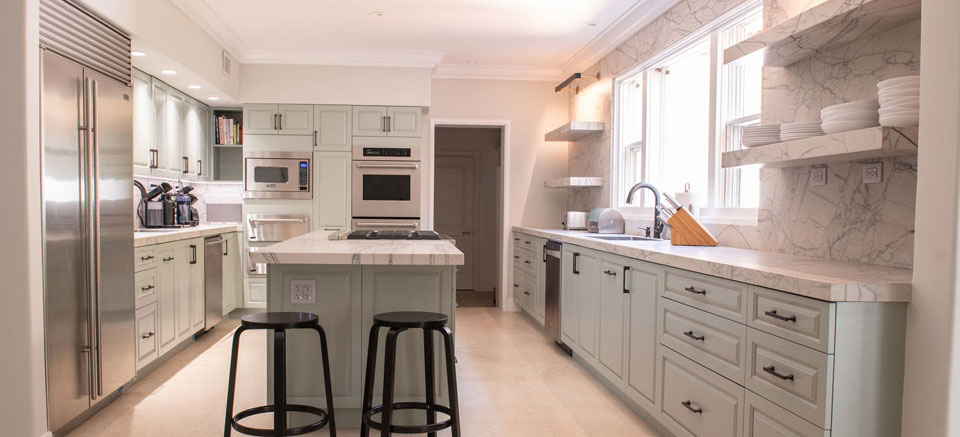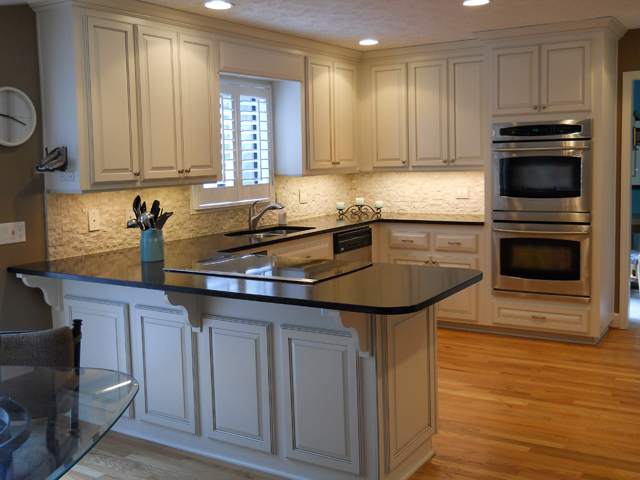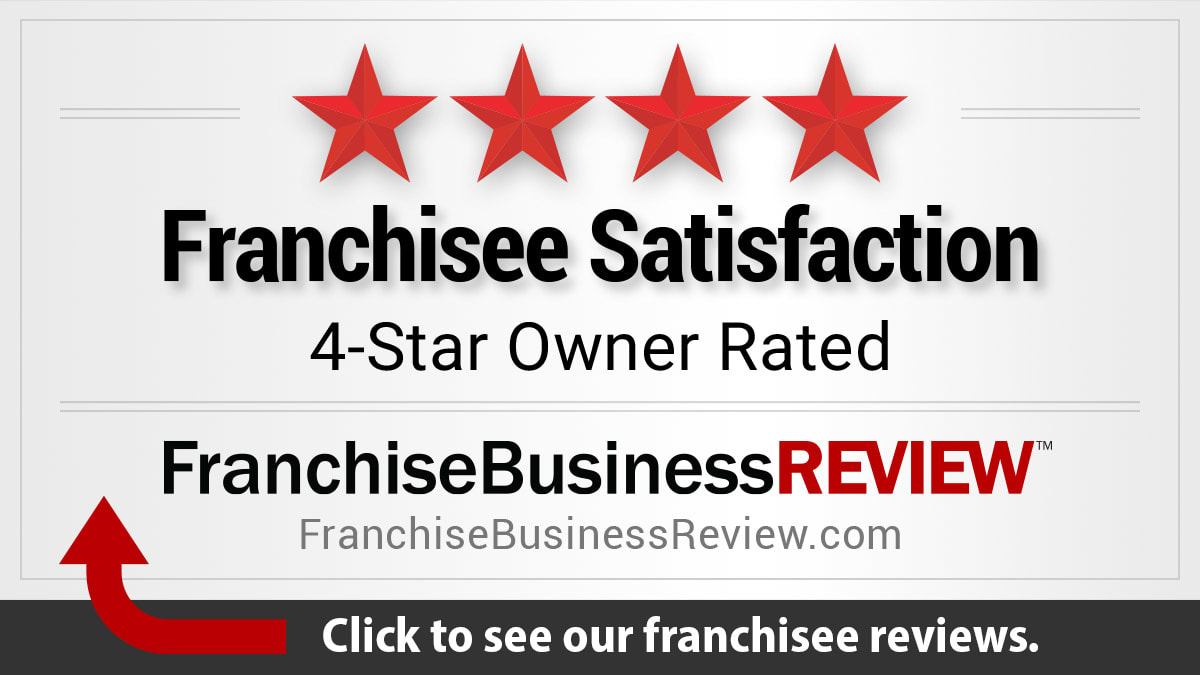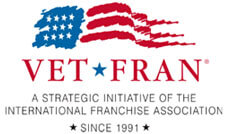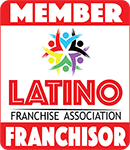Kitchen Solver Franchise Review: An Interview With Art Mancino, Kitchen Solvers Owner in Roswell, GA
Art Mancino had decades of experience in franchising. So what attracted him to kitchen remodeling and cabinet refacing?
Art Mancino, 62, opened his Kitchen Solvers in Roswell, Georgia, in 2003. Mancino had a lot of previous experience with franchising, having owned a Burger King for more than a decade, and having worked with Dunkin’ Donuts and Baskin-Robbins. The Certified Franchise Executive also served as a franchise broker for several years, helping to connect entrepreneurs with a variety of brands. So, when he decided to launch another business, why did he choose Kitchen Solvers? We asked him that question, and many others. What were you doing before Kitchen Solvers? I’ve got 30 years experience in franchising. I’ve done marketing, franchise sales and franchise development, and I had been a franchisee in other entities, so I was probably one of the easiest sales Kitchen Solvers ever had. I did my homework before I came to meet them. I had been involved with Dunkin’ Donuts and Baskin-Robbins. I spent 14 years with Burger King. I’ve also been a franchise consultant. Some companies don’t have direct franchise sales people, so I did that on behalf of dozens of franchise companies. I’m a Certified Franchise Executive, so I was pretty in tune with most of the operations and legal side. Burger King was a $1 million investment with a 7-day-week, and you had to manage 50 teenagers. I didn’t want that again. I wanted something that wasn’t 7 days a week, that didn’t have to have a storefront, so I could work from home if I want to. I have a showroom that is open by appointment. I had it narrowed down to 2 to 3 companies. My son, Tom, works with me in the business, and he had some knowledge of the construction industry and multiple profit centers. Most of my business is refacing or replacing. By doing both, we’re not walking in with a pre-determined thing we need to sell. Usually I’m in the top 10 in sales every year. How did you find out about Kitchen Solvers? If found out about it because of access to franchising books and handbooks and the International Franchise Association — and Kitchen Solvers is a member of the IFA. I had my parameters: I didn’t want something where I had to put more than $100,000 into the business. Kitchen Solvers was $150,000, and I went in with half cash, half debt — a 1-to-1 ratio of equity-to-debt, and that’s a good ratio. I wanted it to be a business my son is capable of taking over if he wanted. They made it onto the short list. When I met with them, it was very comfortable. I was probably one of their easiest sales, because I knew all along what I wanted to do with the business. They were comfortable that I knew what was going on, and didn’t need a whole lot of training on how to run the business. I just needed to learn more about the product. The before photo of a kitchen remodeled by Art Mancino of Kitchen Solvers. I also like that they were honest about the business. Franchising today – most people don’t realize that, if you’re someone in corporate who makes $100,000 a year, you’re not going to immediately make $100,000 a year with your business. There’s a lot of stuff you have to do to build the business up to those numbers. You might go a year or two without making money comparable to what you used to make. The problem with some franchises is that they don’t sell to the franchise prospects the way that they should. I didn’t feel like Kitchen Solvers was that way — and Kitchen Solvers didn’t have the fallout that some other companies experienced the last couple of years. What sets Kitchen Solvers apart? A third of my business is referral. I don’t do much print advertising — just Yellow Pages and internet marketing and home shows. Customers and a few designers do the referrals. My referral rate is so high because we have a very good customer base that we work with. We’ve gotten past the point where there are questions about our ability. We’re not the cheapest guys on the block, but we’ll put our products up against anybody in Atlanta. Refacing with solid wood which is a niche — we do not reface with veneers. It costs more, but the value is very, very good. It’s important to market to the right people. You can’t please everybody, so you don’t try. My typical customer probably starts at 35 years old. The husband and wife work. They want it done once and they want it done right. They don’t need all the insanity of subcontractors. I’m a licensed contractor, so I can gut a kitchen and rebuild it. The only thing we don’t do is go outside the house — I don’t do room additions. Most of the Kitchen Solvers with a few exceptions have less than $1 million in sales, and a couple of employees at most. It’s a business where you wear a lot of hats. One of the benefits of the franchise is I get discounts from suppliers that I wouldn’t get otherwise. Kitchen Solvers manages the website for me. We have a Facebook page, too, but this is the stuff that I really don’t want to manage. It’s not me. Kitchen Solvers helps manage those ancillaries. As a small business owner, you choose the hats you want to wear. You’re going to wear a lot of hats. Delegate the ones you’re not comfortable wearing. If your franchisor can pull some of those hats off for you, there is value. Who makes a good Kitchen Solvers franchisee? What attracted you to it? When you finish a kitchen and see the smile on the wife’s face, when she’s happy and thrilled, you know you’re making people happy in their own homes. Anything you do in life, you want to be able to help people. You want to provide satisfaction whether you’re a volunteer worker or anything else. If you can’t provide satisfaction, you’re not going to be fulfilled. When the homeowners want to refer you, and you’ve made their life a little better, that’s a good feeling — and that’s part of the enjoyment of being in business for self. I’d probably be a terrible employee today. I spent 22 years as a corporate employee, then I had the Burger King franchisee. When you become a mid-level employee, you start respecting the people rather than the position. If you get someone in a position above you that you have no respect for, you might call them on the carpet and get yourself in trouble. Once you’ve been self-employed and been successful, it’s hard to go back and follow the path of someone with no idea what they’re doing. How large is the opportunity? When I was looking at franchising, I looked at my niche, my customer base, and the territories available. My target home will be worth $200,000 to $1 million. When I looked, my territory was goldmine. Kitchen Solvers was able to study my ZIP code and tell me what the opportunity was. Everybody can use you once or more. A lot of kitchens I’ve done, I’ve come back 2 to 5 years later and done the bathrooms for the same customer. You can do a nice reface for $6,000 to $12,000. Throw in countertops and a tile backsplash, and that might get in the $15,000 to $20,000 range. Replacements go up from there. We can meet myriad pocketbooks, which is important because not everyone want to spend $50,000 on a kitchen. Sales depend on demographics and whom you’re marketing too, and you must have the product to meet their needs. But sales is a numbers game. To get sales, you get the phone to ring eight times each week, you need to make 4 appointments, and you need 1 sale. My average sale is $13,000. The marketing question is, how do I get 4 appointments a week? How much do I have to pay for Pay Per Click? My marketing is very, very selective. I don’t even market to 2/3 of Atlanta. I don’t market to people who are unlikely to become customers, or who are too far away. If they’re more than 45 minutes away, I don’t want them. Otherwise my crew is spending half the day on the road. That is how you become pretty good at what you do: Know your customer and how to market so that you don’t waste money and time. Who are your main customers? Who are your best customers? My best customers start about age 40 and the husband and wife both work. The other big customers are retirees. Those who are 40 to 60 are at their peak earning power, and most remodeling is done in that age bracket. The subtle factor is that you don’t want to buy territories where there’s a lot of new construction. I want homes that are 10 to 20 years old. That’s the prime market right there. That’s the beauty of technology. You can put in all of these filters and it’ll spit out where is an ideal spot. Did you have craftsman experience before owning the franchise? Not other than doing the kitchen in my own house. With Kitchen Solvers, I had to go through a couple of weeks of training learning how to do stuff. From day 1, I had a showroom and two installers, so I had to sell like the devil to cover that nut. I was up to 3 installers before times got tough and I went down to 1 installer. Now business is going back up, so I’m looking at adding another installer again. I have no debt, which helps you survive lean times. I’m getting a lot of remodeling from people who have been past customers who were holding off on a second job. A lot of people are finally doing something. We’re starting to see improvement after two years of the remodeling spigot being off. The good news is that for the survivors that haven’t gone out of business — with the help of ads and a good referral network — you’re doing good. What types of work are you getting more of? Refacing is a big chunk of our business. We do refacing and custom cabinets. I have three jobs I’m working on where someone else is remodeling the master bath, but they want custom cabinets built with countertops. All three of the jobs are for existing customers. Bathroom remodels are not my favorite thing, but we’ll do them for existing customers. I’d rather stay in the kitchen. In the bathroom, you can usually only get one subcontractor in at a time. With a kitchen, you can have multiple people working on it. Bathrooms are never simple; there are always add-ons. A $15,000 remodel for a bathroom will probably mean that and 10% more. Either the homeowner wants a bigger shower and you have to move a drain, or you have to tear out drywall and move a joist. It’s all extra work which you don’t know about until you start to tear things out. Those surprises don’t happen in the kitchen. How long do most jobs take? Refacing jobs that start on Monday are done by Thursday or Friday. If you start adding countertops and a tile backsplash and custom-built cabinetry, now you’re talking 2 to 3 weeks from start-to-finish. If it’s a major remodel where you have to gut and reconfigure the kitchen, you’ll look at 3 to 6 weeks. That’s from the time that we start work. The contract might be signed two months earlier if the cabinets have to be ordered. If it’s a refacing job, it might be five weeks from the time the contract is signed to when the kitchen is done. What would be a big and a small job for you, in terms of the bill? A small job would be $4,000 to $5,000, for bathroom vanities and adding countertops. For a major kitchen remodel, my upper end is in the $60,000 to $80,000 range. What does your typical day look like? If I’m not wearing a tool belt, I’ll go on one or two sales appointments, and the appointments usually last 1½ to 2 hours. With drive time, that can fill a day. A couple of days a week, I’m helping my son do installs. The week goes fast. At night, I do paperwork. I’m usually out of the house around 8:30 a.m. On Saturdays, I may do a sales appointment. I don’t give price estimates during the appointments. What I do is invite customers to come to the showroom for the quote. I have many more closes when they some into the showroom. When I meet them and shake their hands, I tell them that I’m only here to give you information and show you samples — not to sign any contract. That puts them at ease right out of the box. My customer base would laugh if you tried to get them to sign a sales contract at the first meeting. Think of yourself when you’re buying a big ticket item. Are you going to sign a contract the very first time you meet someone? Do you own one territory, or several? Why? I have two territories. I bought one initially, then bought another one within the first couple of years. I had another franchisee next to me, and we made a deal to swap some ZIP codes so that our territories would match up with the Yellow Pages circulation zones. That allowed me to advertise in two books instead of the three I was advertising in. At the same time, the other franchisee could advertise in just one book — and I wouldn’t be in it. It cleaned it up so that the territories were more marketable, so it was a win-win. I added my second territory in 2006 or 2007. I wanted to expand. What is a secret to your success? I would say we found a high-end refacing niche that we do that other people just don’t offer. The fact that we’re able to sell new cabinets, as well as do refacing — and any combination thereof — makes us special. A lot of my competition wants to either reface or gut and replace. Very few do both. You can only be good at so many things, especially in remodeling. The people who do basements, kitchens and roofs — you either have to have a lot of divisions or you won’t be in business, because you need to be able to do it better than anybody else. The key is marketing to people who will use that niche. You need to find the niche and know how to market it. You have to do internet marketing. If you can find somebody that wants to do social networking and stuff like that, it can’t hurt, but it’s very time consuming and you’re either going to love it or hate it. I’m old school. People in my age bracket — 40- to 60-year-olds, most will have internet access on mobile devices, but they’re not tweeters, or bloggers or big Facebook people. They mostly use the internet for communications purposes. The under-40 crowd is much more involved in social media, and as that age bracket pushes up, you will have to be more adept in the marketing. All that stuff better be part of your marketing in 5 or 6 years. So using the internet is key, and making good connections. You have to network with contractors and designers. My contractors are a very strong group. They love me. I’m probably one of the few contractors who pays subcontractors very quickly. They reward me by always being there, and they have no problem referring people to my business. The check that I enjoy writing most is the $100 referral fee that I write to someone for referring another customer. My typical customer, their household income is six figures, so the $100 isn’t much in the grand scheme of things, but I always write it out to wife and she uses it as mad money and gets a kick out of it. I have a designer I work with. She sent me two customers. Depending on the size of the job, I’ll send her a $100 or $200 or $300 gift card as a thank you. If you know people who deal with your customers, and you treat them well, they’ll be a sales force that you don’t even have to have on salary. Would you recommend a Kitchen Solvers franchise to someone else? Yes. One thing I’ve always respected is that whenever I’ve needed something — I still need favors and help with things — they’ve never let me down. All you need to do is ask. Everybody there gives commitment to try to help you out. I remember a couple of times I was late on some marketing materials for home shows and they came though. Another time, I was designing kitchens using 20/20 software. I can design it in 20/20, but I can’t make it really polished for a presentation. I don’t have that skill. I can make it look “eh.” The IT people there, for a couple of hundred bucks I sent it to them and it comes back as a very professional package, and that’s really impressive to customers. The IT guy there — Trey — has bailed me out of more computer problems than I care to mention. When running a home-based business, you always get glitches. I had problems with my computer at home one day and he spent time that he didn’t have to in order to help me out. He solved my problem in 15 minutes rather than me fumbling with it for 3 days.
Back
